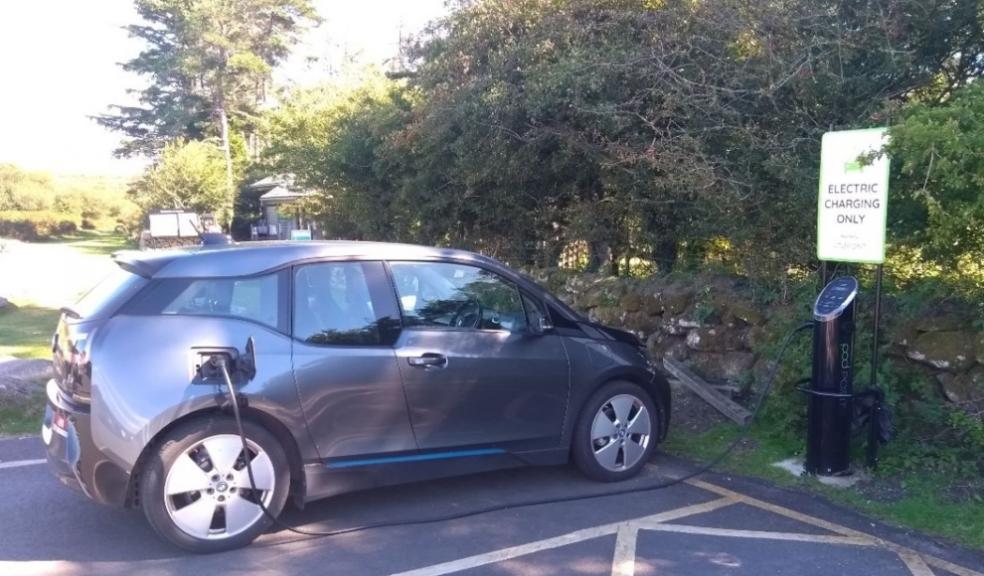
Electric vehicle charge station for Haytor car park
An electric car charge point has been installed at Haytor car park – the most remote publicly accessible charging point on Dartmoor.
Dartmoor National Park is leading the way in tackling the climate and ecological emergency, which includes helping people with electric cars to charge up their vehicles when visiting.
The charger is a twin 7kw rapid charger, supplied by PodPoint. People pay for electricity used to re-charge their vehicle through the PodPoint app, making it easy for them to charge while out exploring the local areas.
Head of Recreation and Access Andrew Watson said: “We’re delighted to be able to offer the charging point and see that it's being used.
“Visitors with electric cars can now pop their car on charge, go for a walk, and take in Haytor’s fascinating natural and industrial history, browse the excellent offers in our visitor centre or spend time using local facilities.
“We are particularly proud of how we’ve been able to install them in such a short amount of time while working hard to respond to the Covid-19 pandemic.
“It demonstrates our ongoing commitment to protecting and preserving Dartmoor, fulfilling our Climate Action Plan commitments and responding to public demand.”
Dartmoor National Park Authority was the first UK national park to declare a climate and ecological emergency in July last year.
The declaration was swiftly followed by a comprehensive Climate Action Plan approved by the Authority on 6 March 2020. It focuses on what the Authority will do to further reduce its own carbon footprint and is the most detailed assessment the organisation has ever undertaken.
The Authority has reduced its carbon emissions by more than 50% since 2010 by improving the energy efficiency of its premises. These car chargers will allow the Authority and public to benefit from the use of electric vehicles in the future.
The Authority has prepared its car park at Postbridge Visitor Centre for a charge station, taking advantage of recent resurfacing works to mark out bays in readiness of stations being installed in the future.












